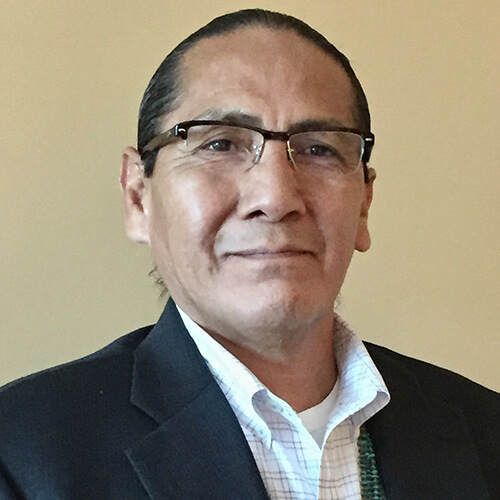
Edward Dee
Executive Director of the Office of Navajo Government Development
– Cultural Transformation: The Nexus for Indigenous & Business Perspectives
– Sustainability Policy on the Navajo Nation
Edward K. Dee (Diné) is a Ph.D. candidate in the School of Sustainability at Arizona State University. His current research includes Sustainable Governance and Policy, Traditional Ecological Knowledge, Social-Ecological Services, Energy Systems, Innovative Community and Social Entrepreneurship, and Human-Environment interaction in Sustainable Tourism, with an all-encompassing proposed dissertation topic of “Mother Earth Father Sky: a theoretical framework and meanings of nature, land, and sustainability in using Diné Lifeway concept.” Edward concurrently completed a Graduate Certificate program in the Administration and Management of American Indian Natural Resources at the University of Arizona and he holds a Masters in Public Administration (MPA) and a Masters in Business Administration (MBA) degrees. Edward is currently the Executive Director with the Office of Navajo Government Development in Window Rock, Navajo Nation, Arizona. Edward is a former board member of the Arizona American Indian Tourism Association (AAITA) and the co-founder of DinéHozhó, L3C. Edward’s previous work experience includes Arizona State University Teaching Assistant, Monument Valley Navajo Tribal Park Manager, Little Colorado River Tribal Park Supervisor, Navajo Local Governance Support Center, Legislative Assistant to the Speaker of the Navajo Nation Council, and Director of Navajo Special Education and Rehabilitation Services. Edward is a University of Arizona Morris K. Udall and Stewart L. Udall Foundation Scholar class of 2002. He is an Honorable Discharged Gulf War Veteran with 8 years of military active service.
Edward’s body of work (research) is pursuing sustainable transitions while incorporating traditional ecological knowledge, more specifically Indigenous knowledge, in the context of systems thinking as part of solutions and co-adaptive management approaches in natural resource management including administration, tribal government, nonprofit, NGOs, L3Cs, and in sustainable community planning. Edward firmly believes that strategic leadership in green business practices is essential to improve adaptive and innovative solutions to intersecting ecological, social, and economic challenges in and beyond tribal communities. It is not enough to broaden the range of economic variables without reorienting technology and ecological risk. A whole system approach is merging environment and economic decision making necessitates a system that strives to balance natural resource distribution between the present and the future generations.
